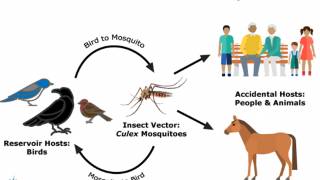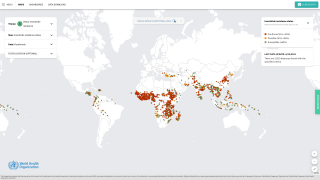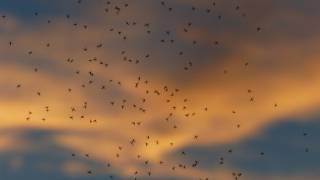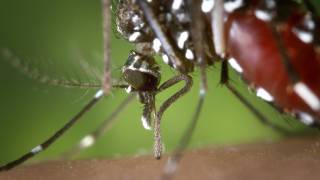West Nile Virus Reported Throughout the EU and USA

The West Nile virus is being reported in various countries as infected birds make their annual migration across the northern hemisphere.
In the European Union (EU), several countries reported 150 additional human West Nile virus infections between September 7 to 13, 2018.
According to the European Centers for Prevention and Control (ECDC) Romania (66), Italy (34), Greece (24), Hungary (21), Austria (3) and Bulgaria (2) reported new West Nile virus (WNV) cases.
Additionally, EU neighboring countries Serbia (24) and Israel (32) reported WNV cases during that time frame.
As of September 13, 2018, EU Member States have reported a total of 948 human WNV cases.
WNV was first isolated in the West Nile District of Uganda in 1937. The disease was carried by mosquito-infected migratory birds from Africa, spreading the virus through Europe and into Russia.
West Nile virus has been detected in a variety of bird species. Some infected birds, especially crows and jays, are known to get sick and die from the infection.
Mosquitoes become infected when they feed on infected birds. Infected mosquitoes then spread WNV to people by biting them.
Across ‘the pond’ in the USA, as of September 4, 2018, 559 cases of human West Nile virus have been reported to the Centers for Disease Control and Prevention (CDC).
Of these WNV cases, 312 (56%) were classified as neuroinvasive disease (such as meningitis or encephalitis) and 247 (44%) were classified as non-neuroinvasive disease.
The WNV case fatality rate in patients with neuroinvasive illness ranges from 4 to 14 percent, and up to 15–29 percent in patients over 70 years old.
There are no vaccines to prevent or medications to treat WNV, says the CDC.
Which means, the best prevention method is to avoid mosquito bites.
The CDC says to use Environmental Protection Agency (EPA)-registered insect repellents. When used as directed, EPA-registered insect repellents are proven safe and effective, even for pregnant and breastfeeding women.
Our Trust Standards: Medical Advisory Committee

























